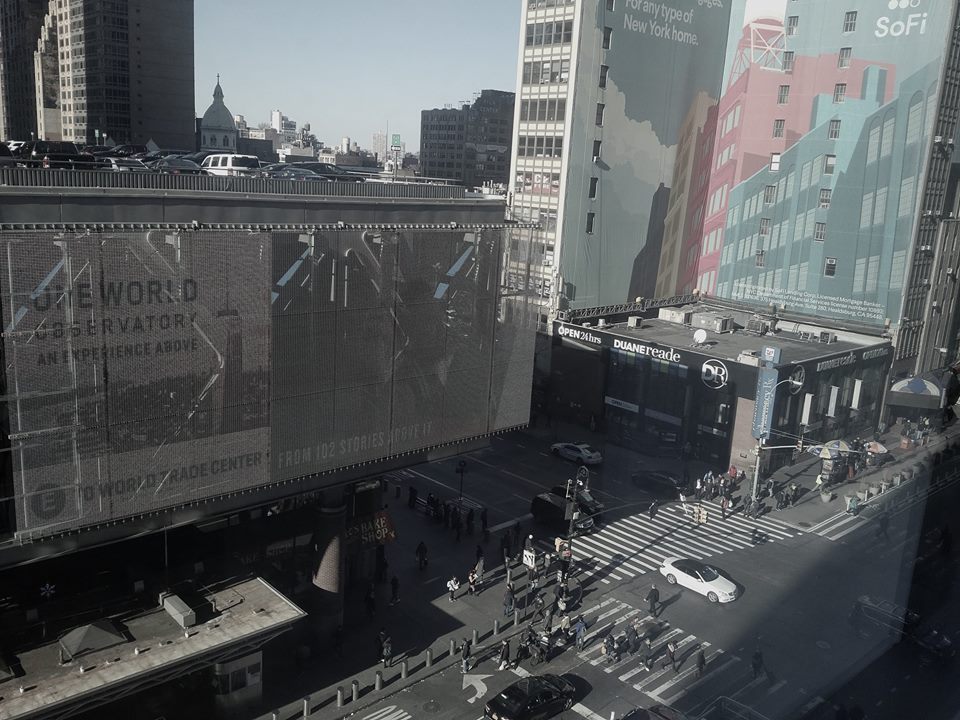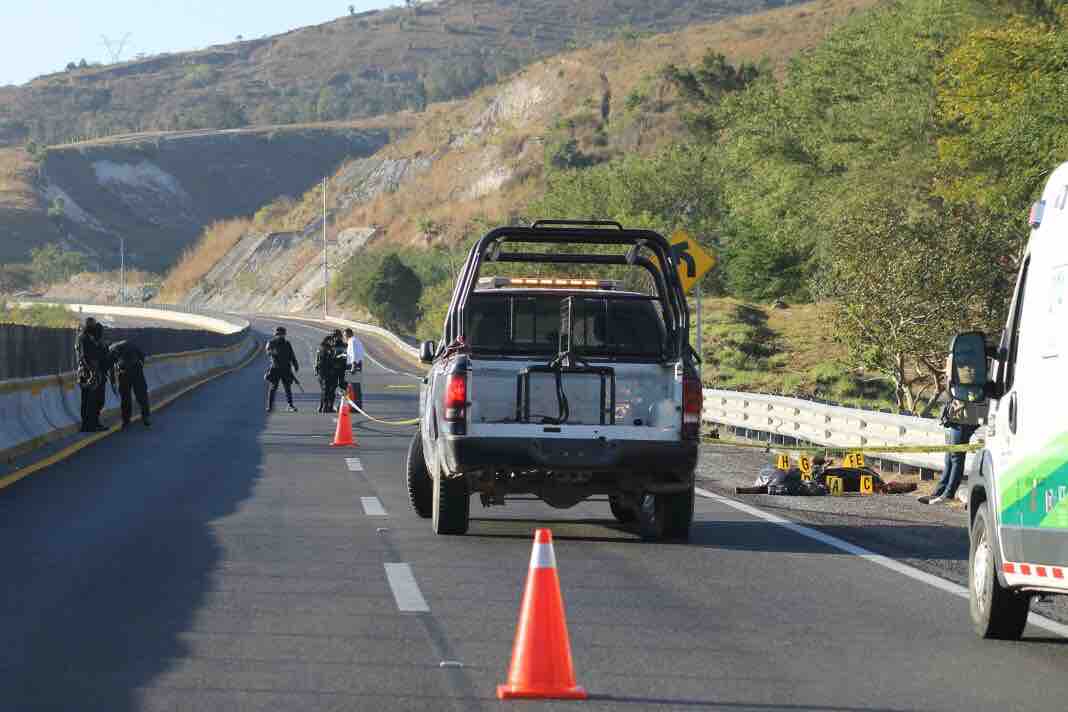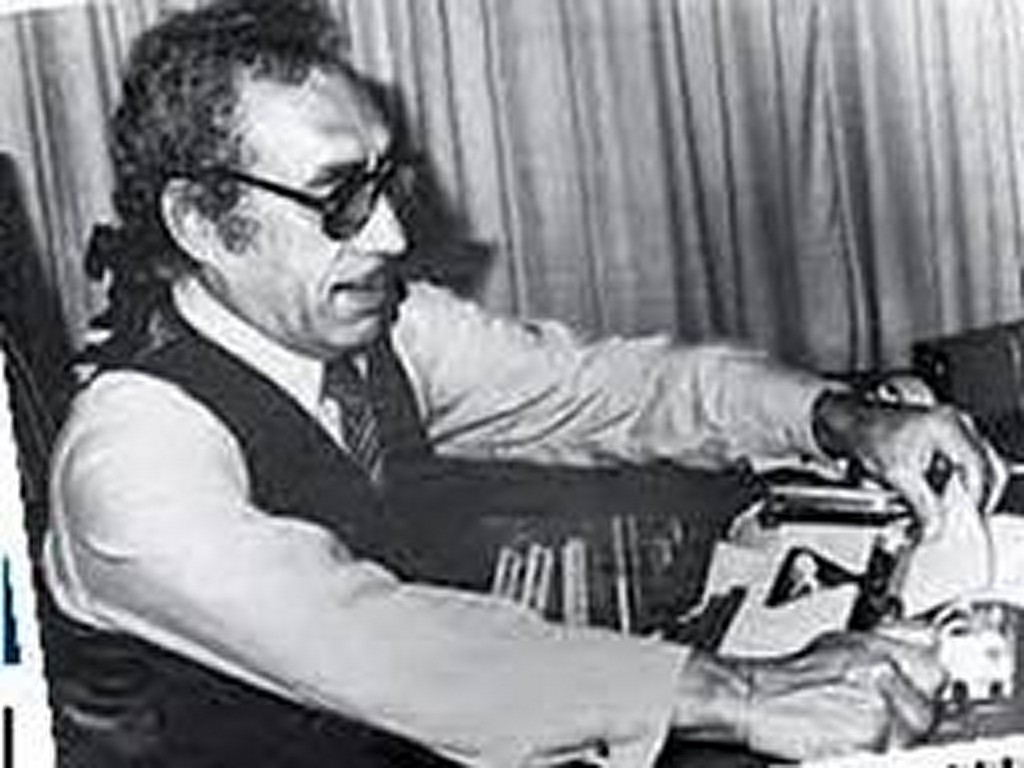Chomsky on the United States And Mexico -- 13 of January, 2012
TweetLEZAMA: On December 1, 2011, the U.S. approved the sale of bunker busters to the UAE that will probably be used against Iran. Then Ehud Barack reiterated Israel's goal of striking Iran's nuclear facilities. CHOMSKY: It's intended as a threat, of course. These bunker busters, also called deep penetration bombs, are the biggest weapons in the U.S. arsenal short of atomic bombs. They were planned during the Bush administration, but they kind of languished. When Obama came in, one of his first moves was to accelerate production of them and they're now being delivered far ahead of schedule. They're intended just for Iran. Nobody has suggested another purpose. They were first put on Diego Garcia—the island in the Indian Ocean that the U.S. uses. The British kicked the population out. It's now used as one of the main U.S. military bases for attacking/policing Central Asia and threatening Iran. LEZAMA: There are also reports of Israeli Special Forces inside Iran. Some U.S. assets were caught as well. How close are we to engaging in a proxy war with Iran? It is an open question. As far as I can tell the Israeli military and intelligence are opposed to it. No moral objection, they think it too dangerous for Israel. In the United States the same appears to be true. However, the political leadership in Israel is unpredictable. A couple of days ago an important Israeli opinion poll was released. It showed, quite interestingly, that the majority of the Israeli public is in favor of a nuclear weapons free zone in the Middle East, which would include Iran and Israel. This would make the Israeli military arsenal subject to inspection by the international agency and surveillance. They've [the Israeli Military] never been willing to do that and still aren't now. It's just the public that wants it. The U.S. and Israel have blocked moves like this so far. LEZAMA: A few days ago there was an air strike against Pakistani soldiers. Has the political leadership in the U.S. considered the potential loss of a nuclear weapon, its going rogue and falling to the hands of someone, maybe their old allies? CHOMSKY: Well, if they haven't considered it, they are really out of their minds because even the U.S. ambassador has warned them about it. We know from Wikileaks that there is a serious danger if the U.S. continues its highly provocative activities toward Pakistan. There is an increasing chance that nuclear weapons, or some components of them, might leak to Jihadi groups. They're a small minority in Pakistan and they've probably interlaced themselves into management of the complex nuclear weapons system. That's a real danger. The same is true of the assassination of Bin Laden. It clearly increased that danger. By now the Pakistani public, an overwhelming majority, are furious at the United States. What happens to Pakistan is far more significant globally than anything that might happen in Afghanistan. LEZAMA: A lot of the information we know about special operations mentality comes from ex-special operations soldiers. One of them is Stan Goff. I was wondering if you had heard of him? There is a good deal of information coming out about these operations. The U.S. now has them, apparently, in dozens of countries. It has expanded very rapidly under Obama. There's pretty good work on this by a number of people. One of the best is Nick Turse. He's done a lot of work on this and he is very reliable. It's highly likely that some of these so-called accidents in Iran have to do with either Israeli or U.S. special operations. LEZAMA: Originally my intent was to talk about Mexico so I'll just jump right to it. The RAND corporation has called supply-side interdiction the most inefficient approach to the drug war. They said that in terms of cost and effectiveness—even if you assume the drug war is legitimate—it's not the right way to do it. You've said elsewhere that either our policymakers are crazy or they have something else in mind. Do you think that the U.S. Plan Merida, which is supposed to be about drugs, is a preemptive counter-insurgency effort? CHOMSKY: The so-called drug war has been going on for a long time, but the contemporary version started under Nixon. It had, essentially, no effect on the price and availability of drugs. Furthermore, as you mentioned correctly, even government studies show that if you really want to deal with drugs, the proper way to do it is prevention and treatment not coercive police action, border controls, or out of country operations. However, if you look at the policies, they are almost exactly the opposite of what the studies say is going to work. Prevention and treatment is very little funded, but it's the most cost effective. Out-of-country operations are the least effective and the most costly, but those are being pursued dramatically. The same is true of border control and police operations. There really are only two possible conclusions. Either they're crazy, which we can eliminate, or they have other things in mind. If you want to make a judgment about intention, one of the first things you look at are likely consequences. If certain acts have likely consequences and are pursued over and over, you can plausibly surmise that those are the intentions. In this case, there are very definite consequences. We see them right in front of us. Within the United States, the consequence of the drug war is a very high level of imprisonment of poor people. Race and class are pretty closely correlated in the United States so it means a very high percentage of blacks and, to a lesser extent, Hispanics are flooding the jails. That's the domestic consequence. The consequence outside of the country—Colombia or Mexico—is counter-insurgency. So, there is a plausible conclusion, which is to get rid of people who are effectively superfluous in a financialized productive economy and to promote counterinsurgency operations elsewhere. LEZAMA: The drug barons that survive in Mexico do so with U.S. support. There is a case reported by the LA Times of a man caught and promised immunity by American intelligence. That didn't pan out. So, now his defense is trying to figure out if they can have access to classified documents that could prove he was cooperating with the DEA and the FBI. Could it be that engaging in this drug war is an attempt to add value to the drug economy? CHOMSKY: I heard one good Mexican economist explain this. Of course, it's hard to get precise figures because it's clandestine, but his estimate was that about a third of the Mexican economy depends on narco-trafficking. There was a study published about a year ago in La Jornada. A couple of universities did a study on Mexican businesses and narco-trafficking and some huge number—I think maybe 80 percent—were involved somehow in the narco-trafficking business. Maybe those numbers are a little off, but I don't see there is much doubt that it's a core part of the Mexican economy. After NAFTA the Mexican economy consists largely of narco-trafficking, remittances from abroad, and oil. LEZAMA:...They say that the number one export is people... CHOMSKY: People means remittance is coming back. And that was a pretty predictable consequence of NAFTA. It's no coincidence that in the year NAFTA was passed, 1994, Clinton began militarizing the border. It had been a pretty open border. LEZAMA: In 2009, the RAND Corporation also published some commentary regarding Mexico's threat to the U.S. It named drug trafficking as one of the threats to regional stability, but then it also ambiguously defined an even bigger threat: left-wing nationalism seeking to retake old Mexican territory. You know the chance that any Mexican movement, whether it is nationalist or anything else, might threaten to take over the parts of Mexico that the U.S. is occupying—the U.S. is sitting on half of Mexico—but the chances that anything like that would happen are miniscule. Just take a look at a comparison of military force. I don't think that's a serious issue. Nationalism is a threat, but not because it's going to conquer the United States. Nationalism in the international affairs literature is often referred to as a virus that can spread contagion. So, if one region moves towards successful independent nationalism, [then] that's a virus. Others might catch the disease and try to do it themselves. Pretty soon you have a spread of independent national-nationalist societies that are separating themselves from U.S. domination. In fact, that's a major theme of the post-war period: preventing viruses all over the place. LEZAMA: The U.S. base that's going to be established in Australia, what do you think of it? CHOMSKY: Remember the U.S. already has dozens of U.S. bases in Australia. This new one is in Darwin in the north. Obama said he would send 2,500 Marines there. That's obviously intended as a threat to China and it's not the only one. Right now there is a major confrontation in South Korea. There is an island, Jeju, which is known as the world island of peace where the U.S. and the South Korean government are planning to destroy a large part of the coast line to establish a major naval base a couple of hundred miles from China. So, there are a lot of provocative actions like that going on. And they're not denying there is a lot of danger in it.






